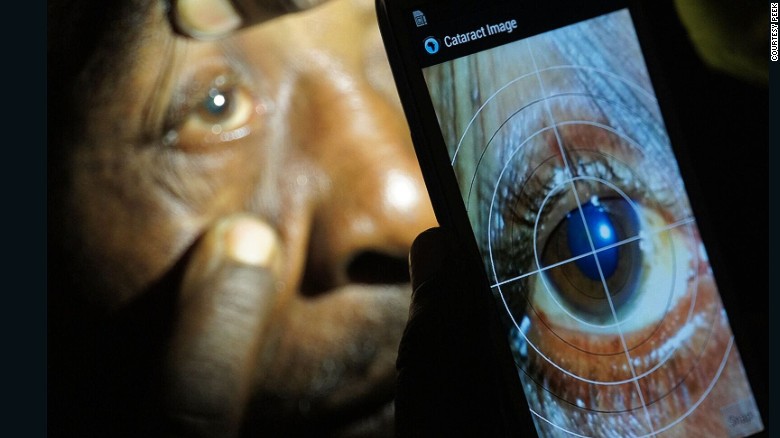In 2012, London eye surgeon Dr. Andrew Bastawrous gave up his job and comfortable life in the capital, sold everything he and his family owned, and moved with his wife and one-year old baby to Kenya to start 100 temporary eye clinics.
This Smartphone App Could Help Cure Blindness

His idea — turning a smartphone into an eye examination tool — was already a couple years in the making. Prior travels abroad to developing countries doing eye tests propelled Bastawrous to want to help those with common vision problems but little access to eye care and health equipment.
There are 39 million blind people globally, and in low-income countries, 80% of blindness is curable.
The two main causes of eye problems, he notes, are cataracts and refractive errors.
“The majority is reversible. People who have been blind for decades, with help, can see again,” he notes.
With this concept in mind, Bastawrous and his team developed Portable Eye Examination Kit (Peek). Trialing the technology, Bastawrous’ team screened 21,000 Kenyan children in 9 days, and will now begin screening another 300,000 in Trans-Nzoia, a rural farming community in eastern Kenya.
The app can replace traditional hospital equipment, which is often bulky, expensive and fragile. Building up local teams, Bastawrous has also worked with village leaders to train examiners at a low cost.
Having just turned 36, Bastawrous was named one of the World Economic Forum’s Young Global Leaders in 2015 and has already helped restore eyesight to thousands of those in need.
While the technology behind the testing is key, Bastawrous says it’s just part of the solution:
“Smartphones and technology will not cure blindness. It’s a lot of people working on the ground,” he explains. Those people include software developers, teachers, other doctors, local village leaders and many more who have no doubt made the work possible.
